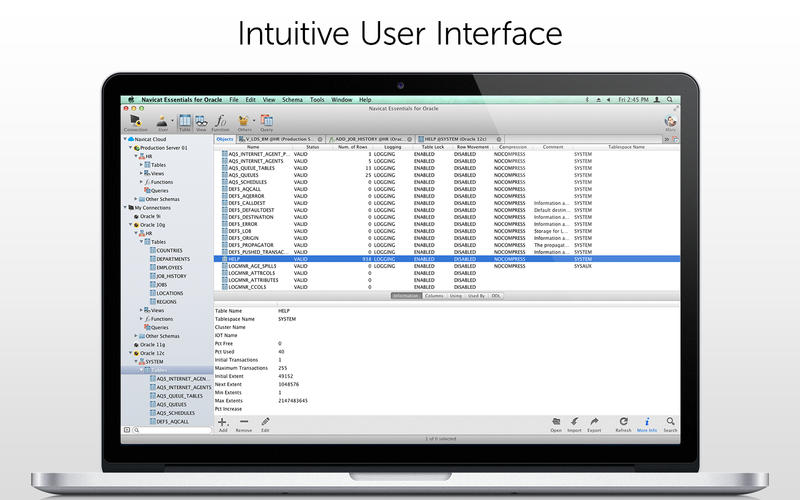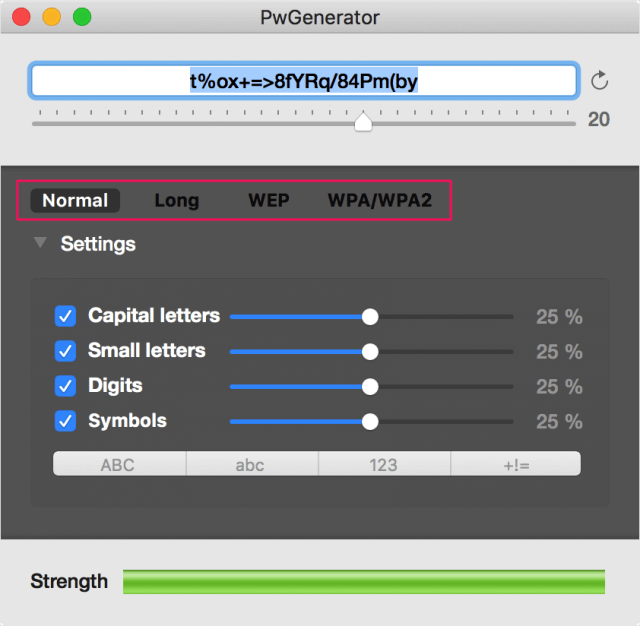

Private static string PASSWORD_CHARS_NUMERIC= "23456789" Private static string PASSWORD_CHARS_UCASE = "ABCDEFGHJKLMNPQRSTWXYZ" Private static string PASSWORD_CHARS_LCASE = "abcdefgijkmnopqrstwxyz" You can add (or remove) characters to (from) these groups.
#Pwgenerator password#
Define supported password characters divided into groups. Private static int DEFAULT_MAX_PASSWORD_LENGTH = 10 Private static int DEFAULT_MIN_PASSWORD_LENGTH = 8 Define default min and max password lengths. / this because some back-end systems do not like certain special / alpha-numeric character it will not start with a special symbol (we do

/ character, one upper case character, one number, and one special symbol

Every four characters will include one lower case / This class can generate random passwords, which do not include ambiguous WARRANTIES OF MERCHANTABILITY AND/OR FITNESS FOR A PARTICULAR PURPOSE. EITHER EXPRESSED OR IMPLIED, INCLUDING BUT NOT LIMITED TO THE IMPLIED
#Pwgenerator code#
THIS CODE AND INFORMATION IS PROVIDED "AS IS" WITHOUT WARRANTY OF ANY KIND, Application template and replace the contents of the Class1.cs file with To run this sample, create a new Visual C# project using the Console rules and does not contain ambiguous characters. SAMPLE: Generates random password, which complies with the strong password This is a lot larger, but I think it looks a little more comprehensive: Using base-64 guarantees a widely-compatible set of characters, and the characteristics of such a string shouldn't make it any less secure as long as you use a decent hashing algorithm. Using Unicode, for example, tends to give a lot of Chinese characters.
#Pwgenerator full#
(tokenBuffer) - just make sure you pick a character set that can represent the full range of values coming out of the RNG, and that produces characters that are compatible with wherever you're sending or storing this. If you don't like using base-64 strings for any reason, you can replace the Convert.ToBase64String() call with either a conversion to regular string, or with any of the Encoding methods eg. However, because base-64 uses a 4-character block to encode each 3 bytes of input, if you ask for a length that's not a multiple of 3, there will be some extra "space", and it'll use = to fill the extra. This controls how many bytes of entropy the password will have. The length parameter specifies the length of the byte buffer, not the output string (and is therefore perhaps not the best name for that parameter, now I think about it). It's been noted that as this returns a base-64 string, the output length is always a multiple of 4, with the extra space using = as a padding character. (You could also have the class where this method lives implement IDisposable, hold a reference to the RNGCryptoServiceProvider, and dispose of it properly, to avoid repeatedly instantiating it.) Return Convert.ToBase64String(tokenBuffer) Using (RNGCryptoServiceProvider cryptRNG = new RNGCryptoServiceProvider()) (This is a copy of my answer to How can I generate random 8 character, alphanumeric strings in C#?) Ulong value = BitConverter.ToUInt64(bytes, i * 8) New RNGCryptoServiceProvider().GetBytes(bytes) Throw new ArgumentException("characterSet must not be empty", "characterSet") Var characterArray = characterSet.Distinct().ToArray() Throw new ArgumentNullException("characterSet") Throw new ArgumentException("length is too big", "length") If (length int.MaxValue / 8) // 250 million chars ought to be enough for anybody Public static string GetRandomString(int length, IEnumerable characterSet) Return GetRandomString(length, alphanumericCharacters) Public static string GetRandomAlphanumericString(int length) The second and third property are achieved by using RNGCryptoServiceProvider instead of System.Random. For small alphabets (such as the 62 characters from the question) this leads to negligible bias.
#Pwgenerator 64 Bit#
The first property is achieved by taking a 64 bit value modulo the alphabet size.


 0 kommentar(er)
0 kommentar(er)
